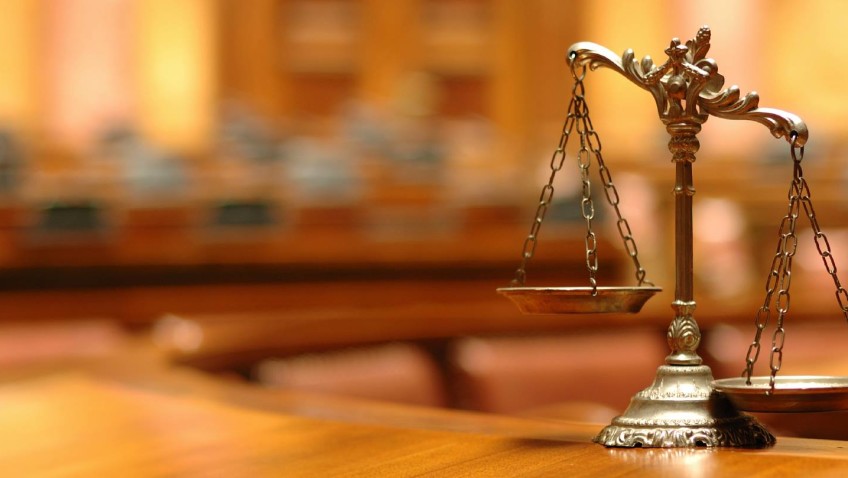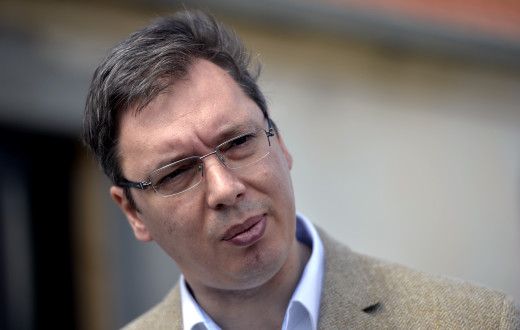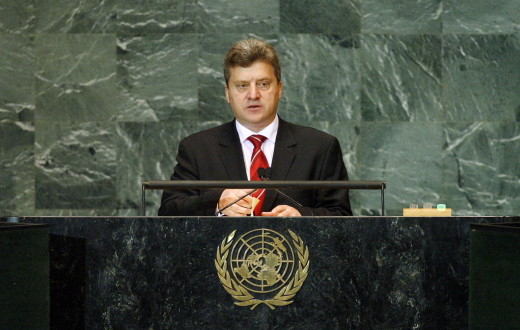An autumn, a winter, a whole year gone now, just as another promise made by the Albanian government. The judiciary reform that was supposed to take place in the autumn of 2015 seemed an unbearable task for Edi Rama. All the rhetoric for change and renaissance (Rilindje) is now fading away. The only work presented by the government, so far, are some desperate, and in some cases inexplicable, actions such as the unjustified resignation of the Minister of Justice Nasip Naço, as well as the arrest of the corrupted prosecutor Haxhi Giu transmitted like a CSI episode by the media. All these efforts show the desperate need of the government to present results, thinking that catharsis will happen only by route of “bread and circuses”.
The government uses the ancient recipe where separation of powers justifies the apathy as the legislative and executive branch cannot influence the judiciary. Despite its position as a ruling party, when it comes to the issue of the judiciary, Rama’s government acts more like opposition and implicitly suggests that it is the precise unwillingness of the other two powers that keep it shackled on this matter. However, the situation is “simple”; all parties know that any effort to provide a solution to the problem of the judiciary will eventually result in two new problems. The case reminds one of the mythological creature the Learnean Hydra, a many headed monster which upon having one head severed, would immediately grow two more. Despite its despicable nature, the monster served a purpose: to guard the entrance of the underworld so “common” people would not face abyss. In a similar case, the corrupted judiciary body of Albania, in spite of its despised reputation, serves ‘the same’ role as the Learnean Hydra. It has become a necessary evil that keeps away unwanted visitors from the abyssal-dark side of the Albanian society; a place with lots of sex, drugs, and death (instead of rock and roll).
However, as necessary as it might seem, the “Albanian Hydra” is an evil root that has to be destroyed eventually; a task that will require a strong man. Kemal Ataturk once draw parallels between the Sultanate run by Mehmed VI and the Augeas Stables, and sought for a Hercules that would be able to clean the ‘dung’. In a similar way, Albania needs a true hero–leader willing to even sacrifice his position in order to complete the task. The question that arises is; why is Rama not willing to do such a thing? The answer is simple; Rama’s unwillingness is explained by analyzing the image of the current cabinet of Albania, which is a coalition government between the Socialist Party (PS) and the Socialist Movement for Integration (LSI). Prime Minister Rama has made many compromises during the 2013 electoral campaign, and the biggest one has been his cooperation with Ilir Meta, the leader of LSI and the main protagonist of the 2010 video scandal that involved various ministers from the LSI cabinet at the time and other judiciaries on a tender where the implicated parties would get € 700,000. Rama’s party was at that time opposition and also one of the greatest advocates for justice on the issue.
Three years later, things have changed. Old enemies have turned into allies, perhaps with a questionable past, but still important to sustain the government. Another problem that has arisen is the inability of the Albanian Parliament to reach a consensus for the reforms, as the opposition party, Democratic Party (PD), is swaying between cooperating and stalling. On the one hand, PD accepts dialogue with the government regarding the reform. On the other hand, it keeps denouncing earlier changes in the judiciary as unconstitutional and repeatedly asks the government to make changes that are actually necessary. Moreover, it asks for a guarantee that the asylum for political representatives will not be touched. All these actions are intended to delay the reform as much as possible. For a long time, the political representative status has been used as a means to secure the valuable asylum, and the Albanian Parliament has turned into a mask that covers and protects people that in other circumstances would have been in jail. The corrupt political elite, with the help of their “Hydra”, have promoted crime and fraudulence as their de facto ruling methods, encouraging infernal ways of governing that is serving only the “Haves” and completely marginalizing the “Have-nots”.
Various researches conducted throughout the years by both domestic and foreign agencies have shown the critical situation of the judiciary precipitated by both Albanians and international institutions. In a 2008 inquiry titled “Corruption in Albania: Perception and Experience”, the Institute for Development, Research and Alternatives found that Albanians believed trials are mostly affected by financial interests, business connections, personal connections with judges, and political considerations. The 2014 Albania Progress Report presented by the European Commission states the necessity for the “adoption of key laws to reform the Constitutional Court, the Supreme Court, the High Council of Justice and the Prosecution. The independence and impartiality of the Supreme Court is not yet fully guaranteed. [..] The functioning of the justice system continues to be affected by politicization, limited accountability, weak interagency cooperation, insufficient resources, delays in proceedings and the backlog of cases. Corruption in the judiciary remains a concern.” The Council of Europe Commissioner for Human Rights, Nils Muižnieks, has also said that “the high level of corruption in the judiciary seriously impedes the proper functioning of the judiciary and undermines public trust in justice and the rule of law in Albania. The authorities have to step up their efforts to ensure that all cases of corruption in the judiciary are effectively investigated and prosecuted”. All of the reports clearly demonstrate the indignation of both Albanians and foreigners regarding the high levels of corruption in the country.
Furthermore, the issue of the judicial reform, which still remains unsolved, has turned into a headache for the Albanian Government, since the reform is a pivotal step towards Albania’s EU accession negotiation process and eventually to its EU integration. For a long time, Rama has used the rhetoric of EU integration in order to keep the media and civil society “busy” with this issue and forget the miserable state of the government and the direct impact it has on the society. Rama has presented EU integration as a “vested right” for Albania; however, there are many “fundamental rights” that he is not ready to respect inside his own country. In all of his speeches on the judicial reforms, Rama highlights the importance of the reforms for the country’s European integration, forgetting that the reforms are foremostly important for his citizens. The EU integration rhetoric is the best “Prozac” for the government, as it gives some false hope for those Albanians who believe the EU will bring the socio-economic and political redemption that the country has been seeking for more than 20 years now. This belief is carefully promoted by the Albanian Government every time it faces a deadlock. Fate, however, comes with a sense of irony. The “pill” that the government has been serving for so long has now produced some unpleasant side effects and asks for some changes in order to continue its effect, changes that would probably shake the very foundation of the current political elite.
A crucial thing the government is missing is that the more it promotes the EU as a panacea, the more it makes people turn their attention for a better future towards the EU countries, consequently risking a new exodus, similar to that of 1997, to these countries, something that is also making their policies for a real change towards a real democratic state, soft. Ultimately, Albania risks entering the blacklist of countries that pose a migration threat to the EU, something we have seen in the past with a surge in migration from East European countries such as Poland, Bulgaria, and Romania etc., towards Western Europe; the UK, Germany, and France.
Eventually, Albania will have to face its fears and fight the monster, neither for the foreigners and their direct interests in doing business in the country which are closely related with the reform, nor for the possible delay that it may have on its EU integration, but for the sake of the Albanians and the country’s democratic future as their “Hydra” has kept them totally immobilized for ages. It is for the Albanian citizens that the case of the judiciary shall finally be rested.








0 comments